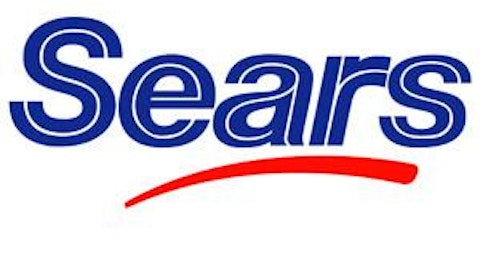
Score a point for Wal-Mart Stores, Inc. (NYSE:WMT). Last week, Washington, D.C., Mayor Vincent Gray vetoed the Large Retailer Accountability Act of 2013, which would have imposed a $12.50 “living wage” upon virtually all new non-union big-box retail stores in the city.
While the bill did not call out any specific retailer, Wal-Mart was clearly the target. Wal-Mart pays entry-level workers less than $10 per hour, and it was in the process of opening its first stores in Washington, D.C. Wal-Mart had protested the bill vigorously, and threatened to pull out of the D.C. market when the City Council passed the bill.
Ultimately, Wal-Mart Stores, Inc. (NYSE:WMT)’s threats — which were probably not a bluff — worked. This highlights the fact that even in a low-growth economic environment, most major cities need big-box retailers more than the big-box retailers need them.
Living wage — but not for all
Unlike most minimum-wage or “living-wage” bills, the Washington, D.C., bill targeted a tiny subset of employers: retail stores of 75,000 square feet or more with non-union workforces operated by companies with at least $1 billion of annual revenue. Moreover, stores that were already open were to be phased into the new wage system over a four-year period.
These bizarre requirements made the bill particularly unpalatable for Wal-Mart. Competitors who already have stores in D.C. would have been allowed to continue paying workers as little as $8.25 an hour for now. New retail stores generally experience a “learning curve” and do not reach peak profitability for several years.
Thus, Wal-Mart would have had an artificial cost disadvantage for the next few years, just at the time when its new stores would be at their least profitable level. Accordingly, officials should not have been surprised when Wal-Mart flatly informed them that it would drop plans for three new stores if the bill became law.
Wal-Mart also put another three stores that were already under construction under review. Moreover, Wal-Mart was not alone: According to Mayor Gray’s letter to the City Council, other large retailers including Target Corporation (NYSE:TGT) and The Home Depot, Inc. (NYSE:HD) expressed that they were unlikely to expand if it meant paying workers at least $12.50 an hour.
Balance of power
Mayor Gray came off as slightly defensive in his letter, stating, “I don’t back down from bullies,” and that pressure from Wal-Mart and other retailers didn’t force his hand. However, that seems to be exactly what happened. Gray simply accepts that big-box retailers would not come to D.C. if they have to pay a special living wage.
The problem for living wage advocates is that depressed neighborhoods need Wal-Mart Stores, Inc. (NYSE:WMT), Target, and other big-box stores more than the big-box stores need them. First, these stores bring lots of entry-level jobs that are suitable for people who have never been in the workforce. Clearly, minimum-wage jobs are not a viable long-term employment solution — but without these entry-level jobs, young adults would have much more trouble gaining the experience necessary to qualify for better jobs.
Second, due to their vast supply chain networks and high-productivity stores, Wal-Mart, Target Corporation (NYSE:TGT), and similar retailers can offer the same merchandise as other stores at a lower cost. By reducing the cost of living, these stores can significantly improve the quality of life for many people in low-income neighborhoods.
As a result — and this was made clear in Mayor Gray’s veto announcement — D.C. needs these retailers more than they need D.C.: even if most of the jobs they create are “bad” jobs. The same is true in many other cities across the country. In fact, a similar big-box living wage bill in Chicago several years ago ended similarly with a mayoral veto.
Foolish bottom line
To many observers, it seems grossly unfair that major retailers like Wal-Mart Stores, Inc. (NYSE:WMT) and Target Corporation (NYSE:TGT) earn billions of dollars in annual profit while many of their workers earn less than $10 an hour. However, it is not practical to raise these entry-level wages through legislation without expecting push-back from retailers in the form of fewer stores (and fewer jobs).
While companies like Wal-Mart Stores, Inc. (NYSE:WMT) and Target Corporation (NYSE:TGT) are eager to grow, they still have ample room for expansion in other cities, states, and countries. They will invest where they can earn a good return on their investments. Any public policy that ignores this fact will ultimately fail, no matter how well-intentioned.
The article Wal-Mart Stares Down D.C., and Wins originally appeared on Fool.com.
Fool contributor Adam Levine-Weinberg has no position in any stocks mentioned. The Motley Fool recommends Home Depot.
Copyright © 1995 – 2013 The Motley Fool, LLC. All rights reserved. The Motley Fool has a disclosure policy.





